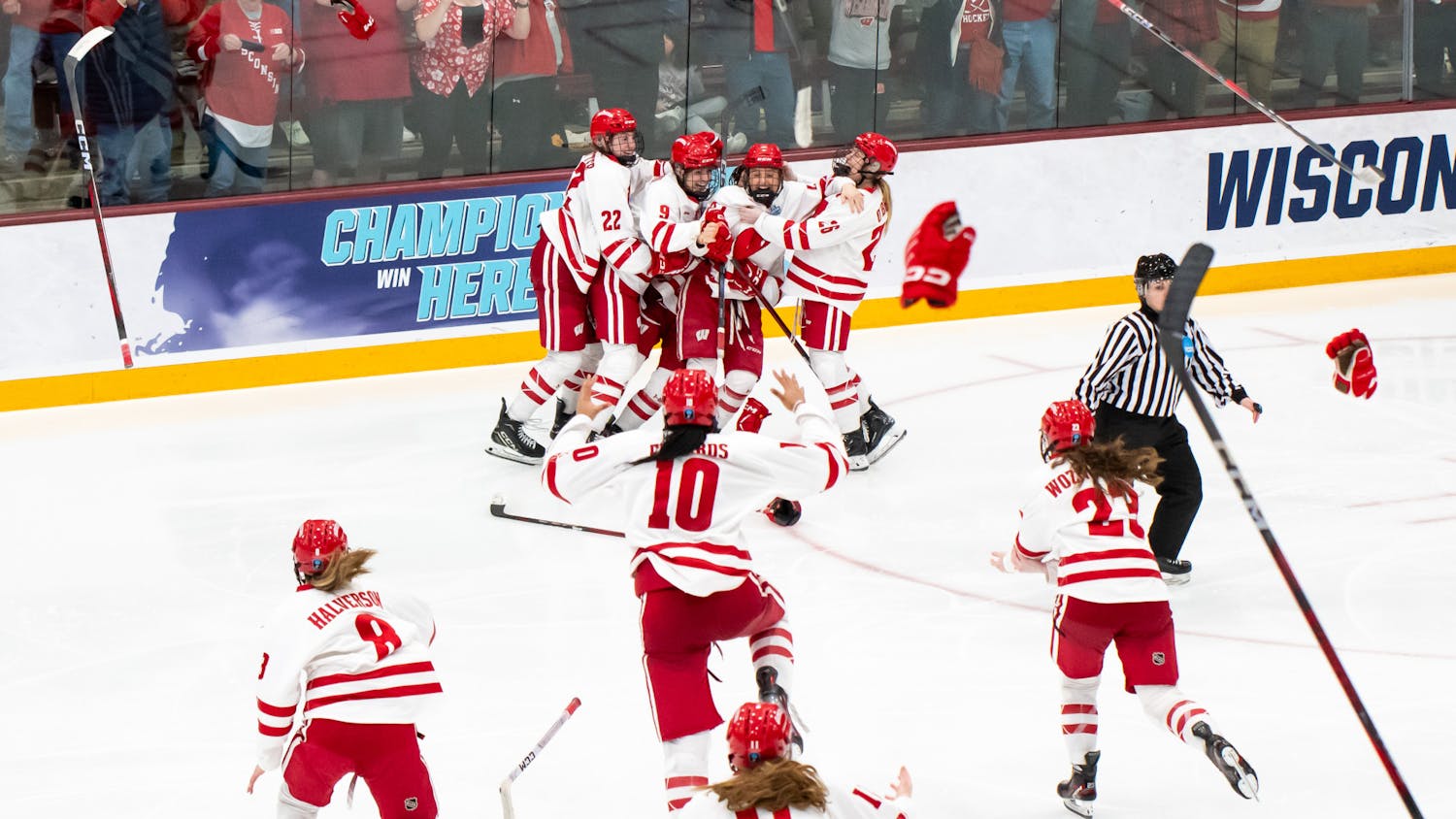SAN JOSE, CALIFORNIA — Typically the questions asked at a pre-game press conference don’t bear much relation to how a game plays out.
Reporters ask vague questions looking for broad platitudes, and the players and coaches behind the microphone offer up nothing that might give away their gameplan.
The day before Wisconsin’s first-round matchup with Oregon, the Badgers faced questions about how the Ducks’ length might affect their shooting, how senior forward Ethan Happ would deal with Oregon’s shot blockers and how they’d contain the pace-switching work of Oregon point guard Payton Pritchard.
By the time the Buzzer sounded on the 12th-seeded Ducks’ (10-8 PAC-12, 24-12) 72-54 first round win over the Badgers (14-6 Big Ten, 23-11), those questions looked prophetic, not formulaic.
Pritchard hit first, backing up his pre-game claim that he prefers to vary the tempo and attack when his team has the advantage. Pritchard’s style stood in contrast to Wisconsin’s continually slow-it-down approach, and the Ducks took advantage in scoring all of the game’s fast-break points.
Pritchard himself finished with a game-high 19, including 12 first-half points when the Oregon offense couldn’t make anything else work.
“The difference was Payton Pritchard, there’s no doubt,” Wisconsin head coach Greg Gard said. “When you have a point guard of that quality, he can make a lot of things happen.”
Without guards able to make it happen themselves, the Badgers had to rely on the offense Oregon knew was coming: a post-heavy scheme run through senior forward Ethan Happ. Oregon forwards Louis King and Kenny Wooten said after the game that they had learned Happ’s tendencies from film, and that anticipation showed in the second half.
Wooten blocked Happ twice in the second half and made his presence known on the defensive end. At one point, he pinned a shot from sophomore forward Nate Reuvers high on the glass after the whistle, seemingly just to demonstrate his ability to sway Wisconsin’s shots.
Happ ended the game with 12 points and eight rebounds, but he wasn’t able to drive the Badgers offense in the way he’s relied on to.
“The thing I’m probably most happy about is that he didn’t have the five assists he usually averages. Zero assists, five turnovers,” Oregon head coach Dana Altman said with a smile. “Kenny [Wooten] got a couple of his shots, I think that put a thought in his mind.”
The Ducks brought their significant length and athletic advantages to bear as the game began to break down and speed up in the final 10 minutes. Oregon threw several lobs to Wooten and White, stretching Wisconsin’s defense in a dimension it wasn’t equipped to handle.
All year the Badgers had succeeded in slowing teams down and minimizing the athletic disparities they faced, but when the time came they struggled to handle the size and leaping ability of the Oregon forwards.
“We got a little out of character on the defensive end,” Happ said “Our defense has held us together all season long and for that stretch there it got away from us.”
The Wisconsin basketball blueprint pioneered by Dick Bennett, refined by Bo Ryan and continued by Gard has brought the Badgers to heights the program had never before sniffed. But on Friday, the limitations of playing slow and making the most of limited talent were on full display.





